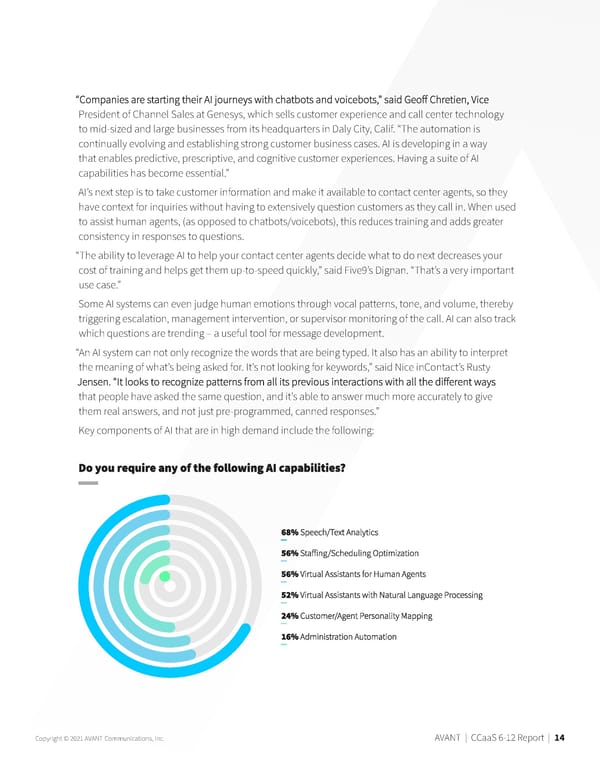President of Channel Sales at Genesys, which sells customer experience and call center technology to mid-sized and large businesses from its headquarters in Daly City, Calif. “The automation is continually evolving and establishing strong customer business cases. AI is developing in a way that enables predictive, prescriptive, and cognitive customer experiences. Having a suite of AI capabilities has become essential.” AI’s next step is to take customer information and make it available to contact center agents, so they have context for inquiries without having to extensively question customers as they call in. When used to assist human agents, (as opposed to chatbots/voicebots), this reduces training and adds greater consistency in responses to questions. “The ability to leverage AI to help your contact center agents decide what to do next decreases your cost of training and helps get them up-to-speed quickly,” said Five9’s Dignan. “That’s a very important use case.” Some AI systems can even judge human emotions through vocal patterns, tone, and volume, thereby triggering escalation, management intervention, or supervisor monitoring of the call. AI can also track which questions are trending – a useful tool for message development. “An AI system can not only recognize the words that are being typed. It also has an ability to interpret the meaning of what’s being asked for. It’s not looking for keywords,” said Nice inContact’s Rusty that people have asked the same question, and it’s able to answer much more accurately to give them real answers, and not just pre-programmed, canned responses.” Key components of AI that are in high demand include the following: Copyright © 2021 AVANT Communications, Inc. AVANT | CCaaS 6-12 Report | 14
 CCaaS Report with trends and research Page 13 Page 15
CCaaS Report with trends and research Page 13 Page 15